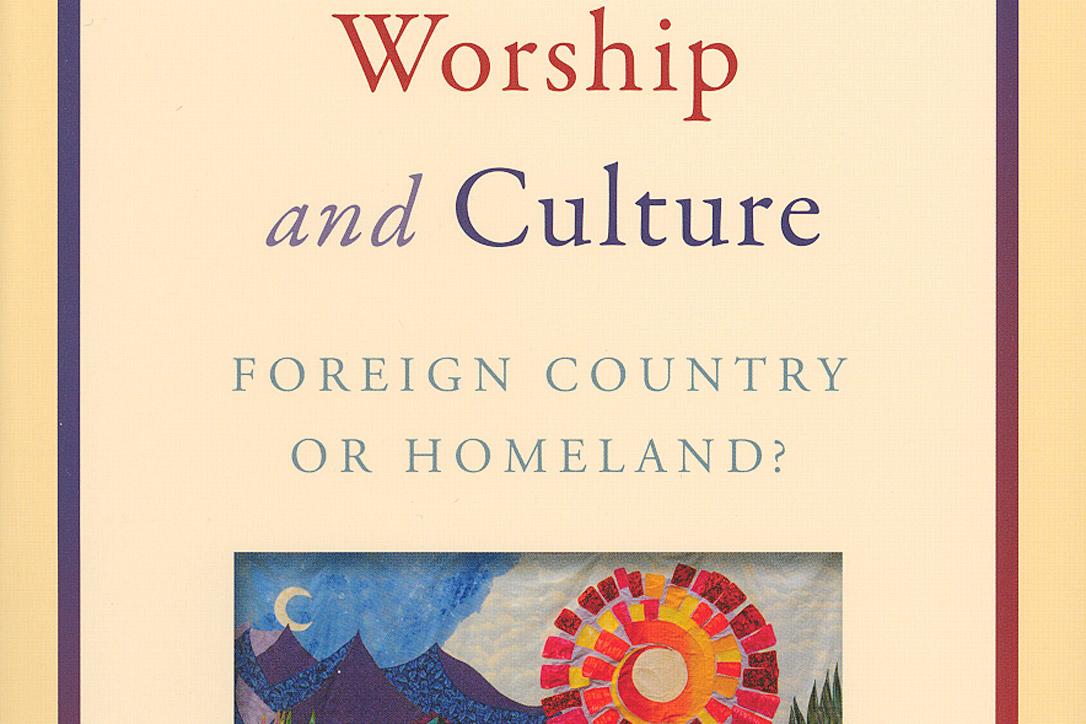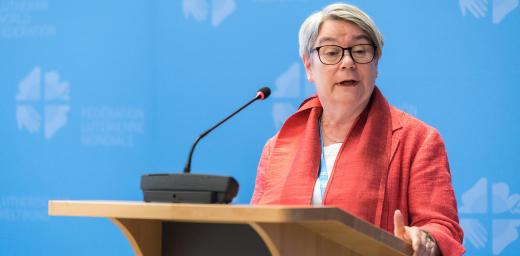Worship and Culture: Foreign Country or Homeland?

Dr Gláucia Vasconcelos Wilkey
In 1994 the Lutheran World Federation published the first of three volumes on worship and culture, direct results of a project that covered seven years (1992–1999), and involved theologians, Lutheran and others, and churches from many countries. In the preface to the first volume, Dr Viggo Mortensen, then director of the LWF’s Department for Theology and Studies, asked, "How are we to proclaim Christ in different cultures?” Then Mortensen suggested a response, “The message must first embrace us, and speak not only to our brains and senses but also our hearts. In order for this to happen it must be incarnated in the life of the people and their culture, just as it took root in one specific culture for the first time.” I concur with Mortensen: the message must first hold our own hearts and entice our very selves into a sense of humility before others’ stories, songs, prayers, actions, and all of life in the midst of particular cultures. That is something we have known and heard in the past: “The word became flesh and lived among us” (Jn 1:14). God in Christ yet today takes body in all the world’s cultures, and so, “Let the same mind be in you that was in Christ Jesus…"
In the twenty years since 1994, Mortensen’s question has beckoned multiple answers and birthed many more questions. Thus this volume: born from the original work, it keeps many texts as they were in their richness, but new essays here enrich and expand the original project, following theological constructs at the heart of those volumes, for example, considering the fabled “Nairobi Statement” alive in its theological message, and not just the work of the past. Writers from various continents and churches, here entice readers with new language, new ideas, yet point to the same vision of the great work of the past. Various essays in this volume reveal that the world’s cultures are not so easily defined; the word “culture” itself calls for deeper inquiry in the multicultural and hybrid global village we now inhabit as peoples and churches. “Hybridity” and “culturally multilayering,” “post-colonialism,” and “multiculturalism,” for example, are by-words that, applied to liturgical concerns, challenge heretofore accepted understandings of inculturation. Worship is, after all, incarnational theology, the Word who is Christ this day and in this place. Study it, dear reader: it will open your eyes and find home in your heart as you serve God in whatever cultural milieu you serve Christ’s life.
Gláucia Vasconcelos Wilkey, editor of Worship and Culture: Foreign Country or Homeland? is a retired pastor in the Presbyterian Church (USA) and lives in Georgetown, Texas. She has been actively involved in the field of theology and liturgy throughout her teaching career.
Copies of Worship and Culture can be ordered from: www.eerdmans.com





